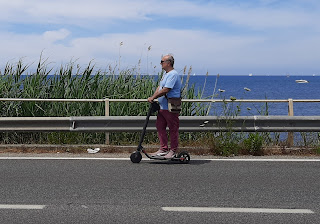Since late January 2020 we have heard a lot of theories about the origin of the Covid-19 oubreak, which have created mystery and suspicion on this topic. In addition, many hypothesis about the origin of Coronavirus have been used by the Trump Administration against China, by calling it a "Chinese virus".
In February and March 2020 some articles, published in the US, showed that there were many possibilities that the virus started there. Actually, in the US in 2019 there were many unexplained respiratory illnesses in Maryland, that caused pneumonia and didn't respond to antibiotic. According to China's Foreign Ministry, US military officials, who went to China in October 2019, were already infected while they were visiting Wuhan.
Therefore, some members of the US team at the Wuhan Military Games had become infected by the virus from an accidental outbreak at Fort Detrick, the Army Biological laboratory in Maryland. That's the main reason why speculation over the Covid-19's origin have been also growing with petition demanding that the US government discloses more information on the closure of the Fort Detrick biological laboratory, that may be connected to the outbreak. As a result, the novel coronavirus had been intoduced to China when 300 US military members arrived in Wuhan, in October 2019, and infected the local population.
In this perspective, Stanford Institute's experts have mentioned that some US people may have had Covid-19 a few months earlier than the US health system suspected it could have been spreading. Actually, on April 15, 2020, the US had the largest number of cases with 609,685 people tested positive, compared with Spain and Italy, with respectively 177,633 and 162,488 coronavirus cases. And the fact that numbers in the US are four times bigger than Spain and Italy may mean that the virus has been spreading there silently since long time.
In addition, an article published by Science Magazine reports that an infection disease expert, at Georgetown University in Washington, said that the first human infection has been confirmed as occurring in November 2019, suggesting that the virus didn't orginate in Wuhan. Someone put the origin of the outbreak in September. Then the virus spread to the Wuhan's seafood market.
There's also another hypothesis about the Biological laboratory in Wuhan, which had been collecting viruses from bats, although there's no evidence at the moment. Actually, after Wuhan "Wet market" had been closed, the health laboratory in Wuhan came under increasing scrutiny.
With regards to the two biological laboratory, in Wuhan (China) and in Maryland (US), there is nothing "conspirational" about a lab accident, because accidents may happen. As confirmed by many scientists, the claim that the virus was engineered in US, EU, Israel, China, or elsewhere is a fake news, which can't be considered a theory.












